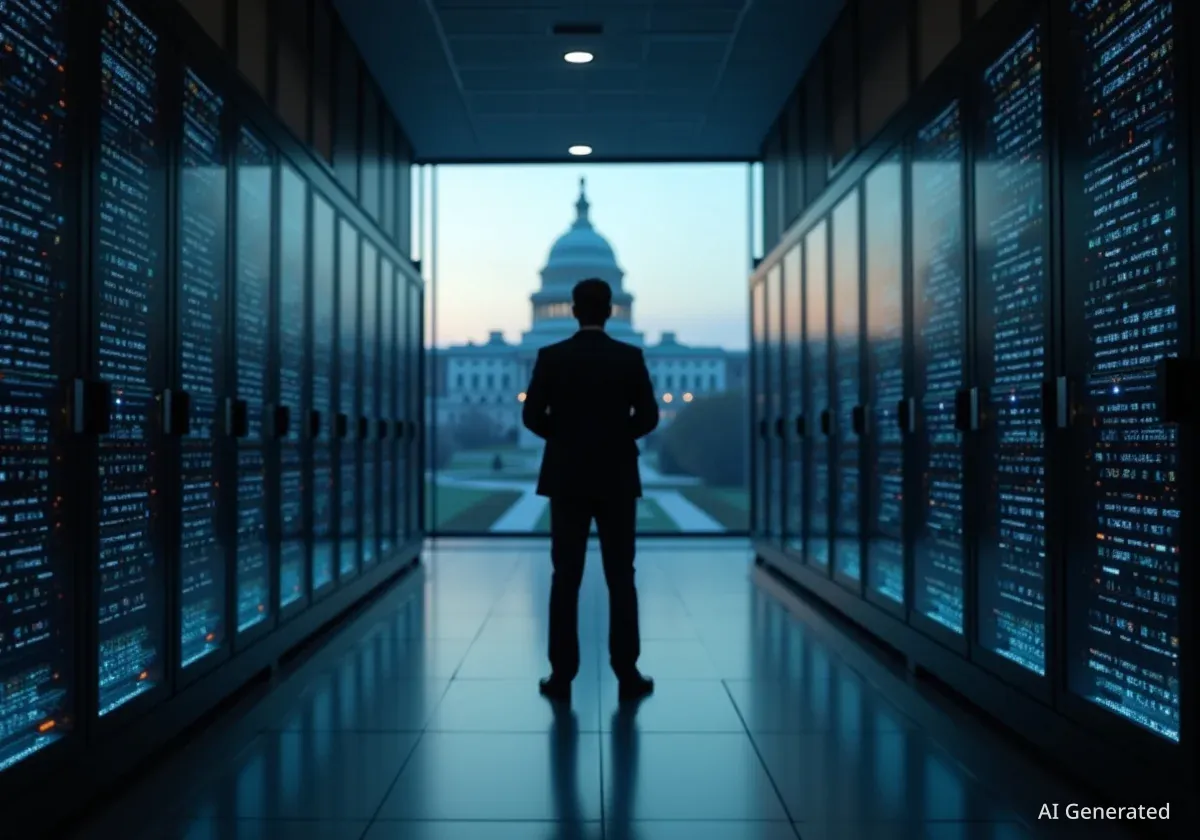Officials from the Trump administration are reportedly expressing frustration with artificial intelligence company Anthropic over its strict usage policies. The company's rules, which prevent its AI model Claude from being used for domestic surveillance, are said to be obstructing the work of federal contractors with law enforcement agencies like the FBI and Secret Service.
Key Takeaways
- The Trump administration is reportedly in conflict with AI firm Anthropic over its usage policies.
- Anthropic's rules prohibit the use of its Claude AI model for domestic surveillance, impacting federal contractors.
- Officials claim the policies are vague and selectively enforced, hindering work with agencies like the FBI.
- The dispute highlights the growing tension between AI companies' ethical guidelines and government security demands.
Government Access to AI Hits Policy Wall
A significant disagreement is emerging between the White House and Anthropic, a prominent AI safety and research company. According to a report from Semafor, two senior administration officials have raised concerns about the company’s acceptable use policy. They state that these rules are creating roadblocks for federal contractors.
The core of the issue lies in Anthropic’s prohibition of its technology for domestic surveillance. This restriction directly affects contractors working with the FBI and the Secret Service, who rely on advanced AI tools for various analytical tasks. The officials, who remained anonymous, suggested that these limitations are creating operational challenges.
The GovCloud Factor
The situation is complicated by the fact that Anthropic's Claude models are sometimes the only AI systems with the necessary security clearance for top-secret government work. This clearance is provided through Amazon Web Services' GovCloud, a specialized cloud environment for U.S. government agencies.
Anthropic's Stance and Government's Concerns
Anthropic has built its reputation on a foundation of AI safety and ethical development. The company’s usage policies are designed to prevent its technology from being used in ways it deems harmful, including weapons development and certain types of surveillance.
However, the White House officials argue that the terminology used in these policies is vague and overly broad. They worry this ambiguity allows Anthropic to enforce its rules selectively, potentially based on political considerations. This has led to a sense of unpredictability for government contractors attempting to use the powerful AI models.
A Nominal Partnership
Despite the current friction, Anthropic has an existing agreement to provide its services to federal agencies for a nominal fee of just $1. This arrangement was intended to facilitate government access to its cutting-edge AI technology for national security purposes.
A Complex Web of Tech Partnerships
The tension with the administration comes at a sensitive time for Anthropic, as it reportedly seeks to expand its presence and influence in Washington. The company has actively engaged with the government on multiple fronts, including a partnership with the Department of Defense. Even in its defense collaborations, Anthropic maintains its policy against using its AI for weapons development.
The competitive landscape further complicates the matter. In August, OpenAI, a major competitor, announced a deal to provide its ChatGPT Enterprise model to over 2 million federal executive branch workers. This agreement, also priced at a nominal $1 per agency for the first year, followed a broader government authorization allowing federal workers to use tools from OpenAI, Google, and Anthropic.
"As AI models become capable of processing human communications at unprecedented scale, the battle over who gets to use them for surveillance (and under what rules) is just getting started."
Navigating Ethics, Policy, and Profit
This is not the first time Anthropic has found itself at odds with government initiatives. The company previously voiced opposition to proposed legislation that would have limited the ability of individual U.S. states to enact their own AI regulations, showcasing a willingness to take public stances on policy issues.
Anthropic's balancing act between its ethical commitments and its business objectives is evident in its other partnerships. In November 2024, the company announced a collaboration with Palantir and Amazon Web Services. The goal was to make its Claude model available to U.S. intelligence and defense agencies for analyzing data classified up to the "secret" level.
This move drew criticism from some members of the AI ethics community. They argued that partnering with a data analytics firm like Palantir, known for its work with defense and intelligence agencies, contradicted Anthropic's stated mission of prioritizing AI safety.
The Broader Debate on AI and Surveillance
The conflict between Anthropic and the White House is part of a larger, critical conversation about the role of AI in surveillance. Security experts have long warned about the potential for these technologies to enable mass monitoring on an unprecedented scale.
In a December 2023 editorial, security researcher Bruce Schneier highlighted the danger. He explained that traditional surveillance requires significant human labor to analyze communications. AI, however, can automate this process, analyzing immense volumes of data to infer intent and sentiment.
Schneier warned this could shift surveillance from merely observing actions to interpreting thoughts and intentions. As AI technology continues to advance, the debate over its application in law enforcement and national security is set to intensify, with companies like Anthropic at the center of the storm.





